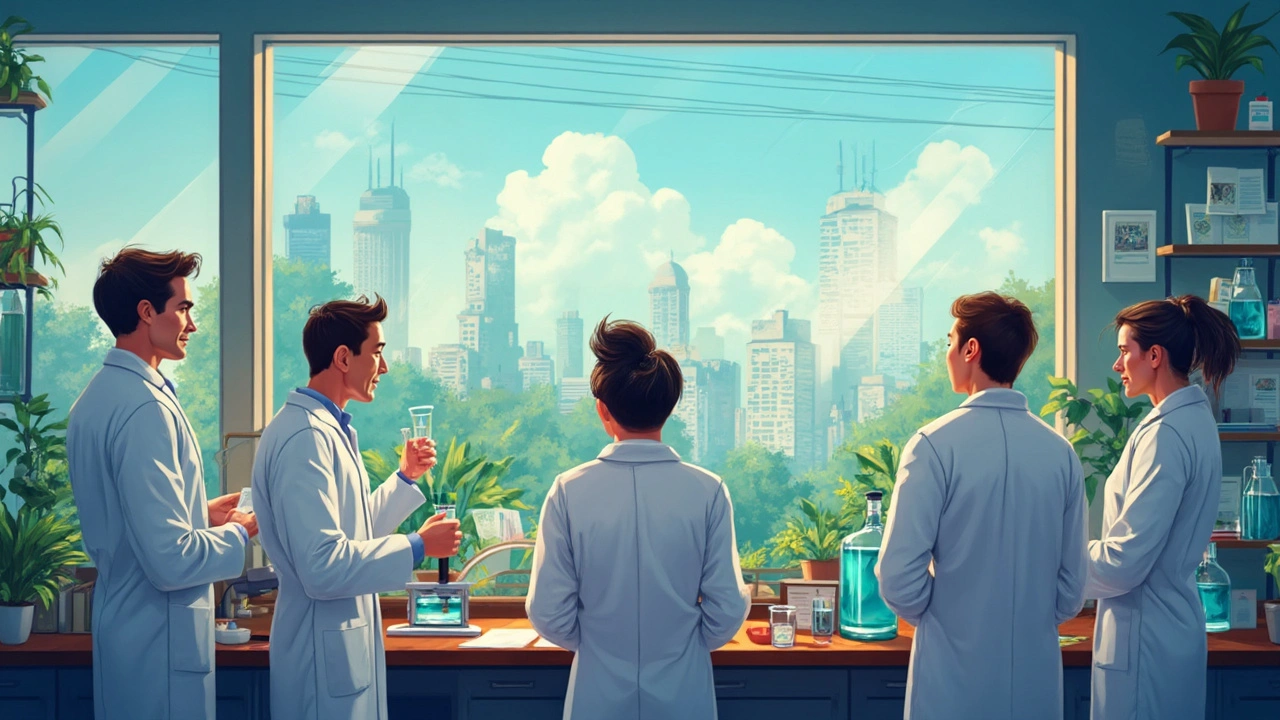
Explore how ambrisentan, a key drug for pulmonary arterial hypertension, interacts with the environment and how sustainable practices can help reduce its eco-impact.
Ever wonder what happens to your pills after you finish them? Most of us think about the price tag or side effects, but rarely the trail they leave in nature. The truth is, unwanted meds, packaging, and even production waste can harm water, soil, and wildlife. The good news? Small changes in how you buy, store, and dispose of medicines can make a big difference.
When you flush a tablet or toss a bottle in the trash, chemicals can slip into rivers or landfill leachate. Antibiotics, hormones, and painkillers have shown up in fish and drinking water, sometimes at levels that affect animal behavior. Even the plastic bottles and blister packs add to the global plastic crisis. Manufacturing is another hidden source – factories use huge amounts of energy, water, and solvents, and the carbon cost adds up quickly.
Start by checking if your local pharmacy offers a take‑back program. Many UK and US pharmacies let you drop unused meds in a secure container, ensuring they’re destroyed safely. If that’s not an option, look up your city’s hazardous waste schedule and bring bottles to the proper facility.
Next, cut down on packaging. When you order online, choose sites that ship in recyclable or minimal packaging. Some of the posts on our site, like the guide to buying generic Ativan online, also mention reputable pharmacies that prioritize eco‑friendly shipping.
Consider the medicine’s lifespan. If you’re on a long‑term prescription, ask your doctor about extended‑release versions that require fewer pills per day. Fewer pills mean less packaging waste. For short courses, only order the exact amount you need – over‑ordering creates extra leftovers.
Finally, think about the ingredients. Some supplements, like the carnosine anti‑aging guide, highlight natural sources that break down more easily in the environment compared to synthetic alternatives. When you can, pick products with biodegradable fillers or plant‑based capsules.
All these steps feel easy, but together they add up. By being mindful about where you get your meds, how you store them, and how you get rid of leftovers, you protect rivers, wildlife, and the air we breathe. It’s a small price to pay for a healthier planet.
Want more tips? Browse our tag page for articles on safe online pharmacies, proper disposal, and eco‑conscious health choices. Every click can guide you toward a greener, safer life for you and the environment.

Explore how ambrisentan, a key drug for pulmonary arterial hypertension, interacts with the environment and how sustainable practices can help reduce its eco-impact.